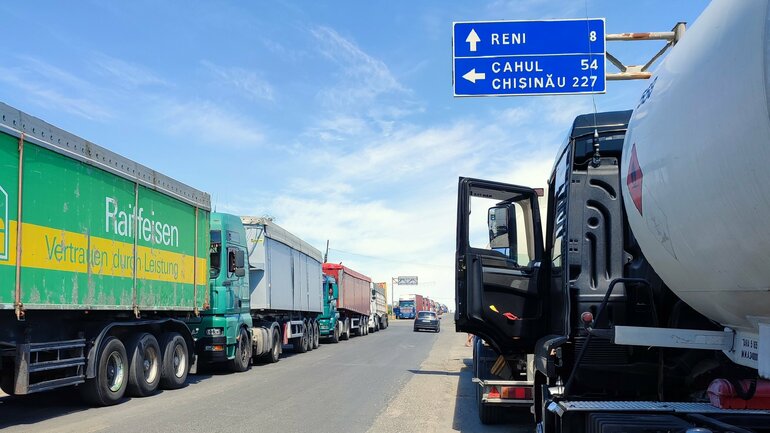Border Logistics and Geopolitics at the Border Triangle between Ukraine, Moldova and Romania
Border Logistics and Geopolitics at the Border Triangle between Ukraine, Moldova and Romania

This project is part of the joint project Living with Uncertainty. Strategies of Adaptation and Horizons of Expectations in Ukraine and Moldova (LimSpaces).
External partner: Dr. Sophie Lambroschini (Centre Marc Bloch, Berlin), Dr. Sandra Parvu, ENSA Paris-La Villette
Project description
Russia’s war of aggression against Ukraine has resulted in the destruction and reorganisation of many local and supra-regional infrastructure and trading networks. The war-related restrictions on port operations in Odesa, one of the most important transhipment centres for grain exports and goods imports in Ukraine, necessitated a large-scale rerouting of trade flows. In this context, formerly sleepy border crossings and harbour towns were transformed overnight into geostrategic bottlenecks for the global circulation of grain and oil exports. While the media has mainly focussed on the devastating consequences of banning exports from Ukraine, little attention has been paid to local infrastructure challenges and the efforts of logistics workers. Our project therefore examines how geopolitical tensions in the region affect urban spaces and the lived experiences of logistics workers. Contrary to the one-sided narrative of geopolitical influence, however, we argue that local and global conditions are mutually co-constitutive. Beyond the current context of war, our research also considers long-term changes, especially to the customs and border infrastructure along the Danube, where the boundaries of Ukraine, Moldova and Romania meet.
In methodological terms, we approach these questions in an interdisciplinary way, combining perspectives from architecture (Sandra Parvu, ENSA Paris-La Villette), economic sociology (Sophie Lambroschini, Centre Marc Bloch, Berlin) and social anthropology (Claudia Eggart, ZOiS) in our cooperative field research at the border triangle between Ukraine, Moldova and Romania. We show how cross-border infrastructures and everyday economic strategies are entangled with geopolitical and geo-economic transformations. While the region is often labelled as ‘liminal’ or ‘in-between’, our research aims to draw attention to the affective geopolitics of the material and immaterial nature of this border. The aim is to create a better understanding of the multitude of actors and factors involved in the (re)shaping of this borderland.
Methodology
- Discourse analysis: critical text analysis of the principles, objectives and trade maxims of the European Customs Union
- Interviews: expert interviews with customs employees, government representatives, members of international organisations and logistics workers
- Ethnography: repeated research trips to the border, customs offices and the urban centres close to the Danube ports in Moldova and Romania
Key questions
- How significant is the intersection of local and global dynamics in this border region for our understanding of border dynamics in general?
- What impact is the war against Ukraine having on the mobility of people and goods in the region? How are logistics workers experiencing this change?
- What do the cross-border infrastructures in the region reveal about past and present geopolitical links?
- What is the relationship between existing and imaginary infrastructure networks and geopolitical imaginaries?
![[Translate to Englisch:]](/fileadmin/media/_processed_/1/f/csm_Claudia_Eggart__ZOiS__ed_7c71aef562.jpg
)